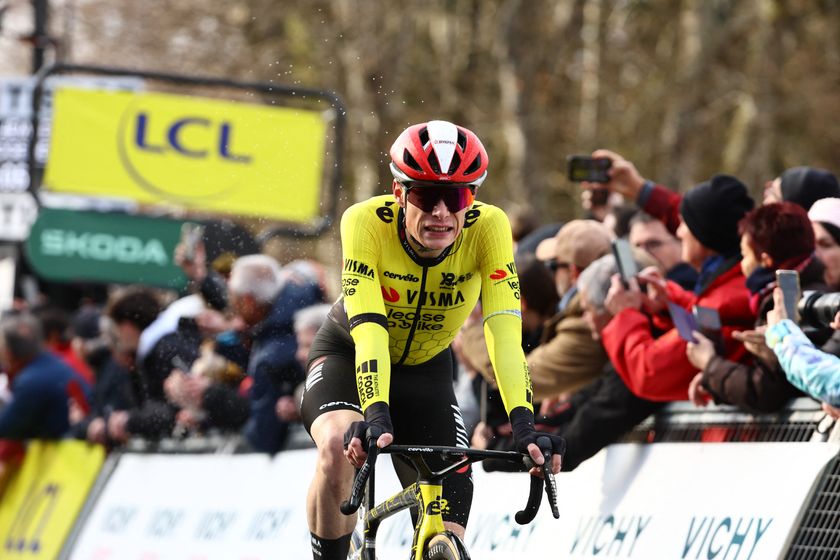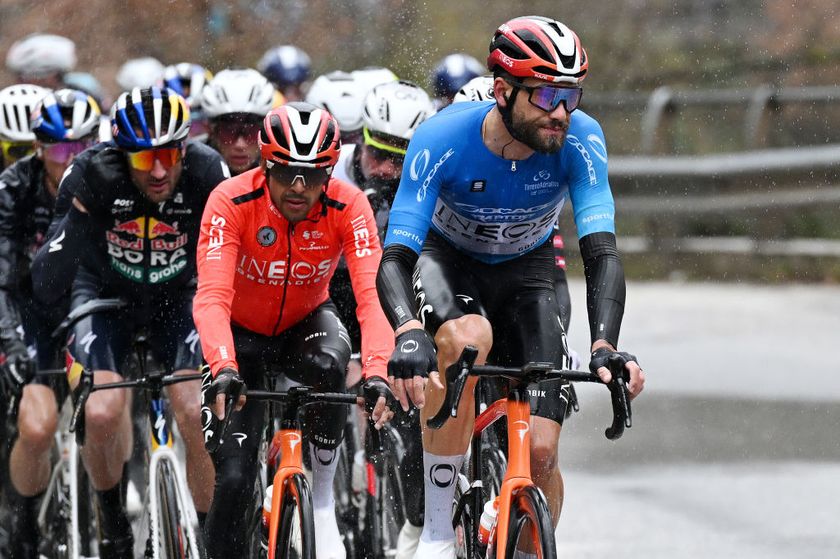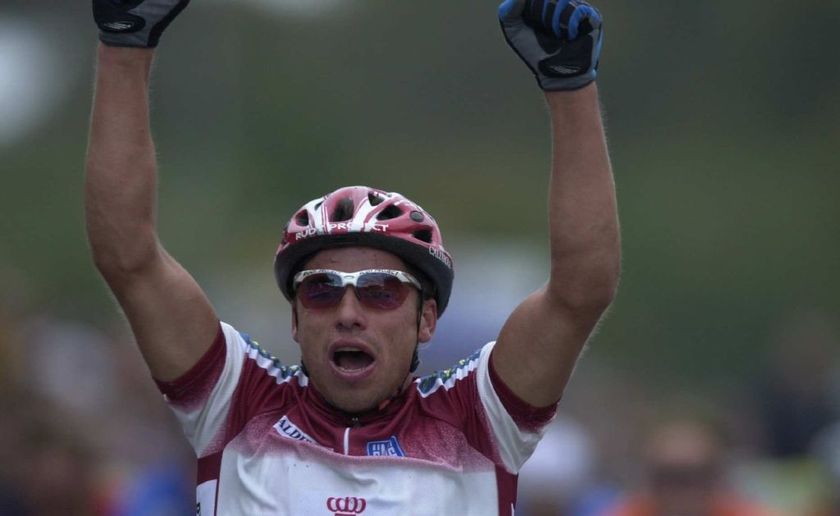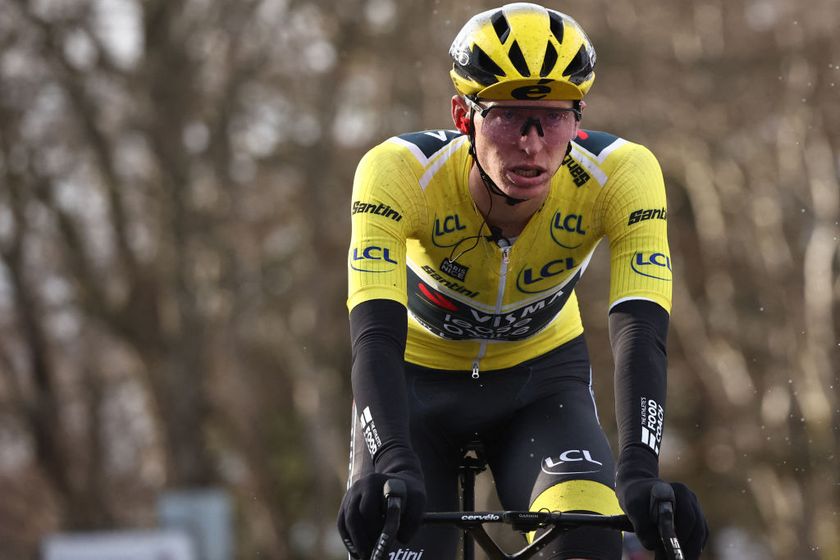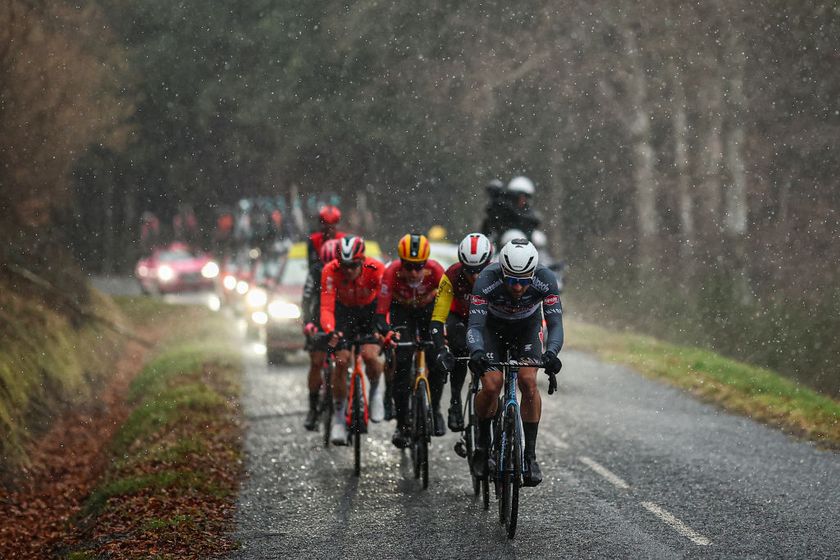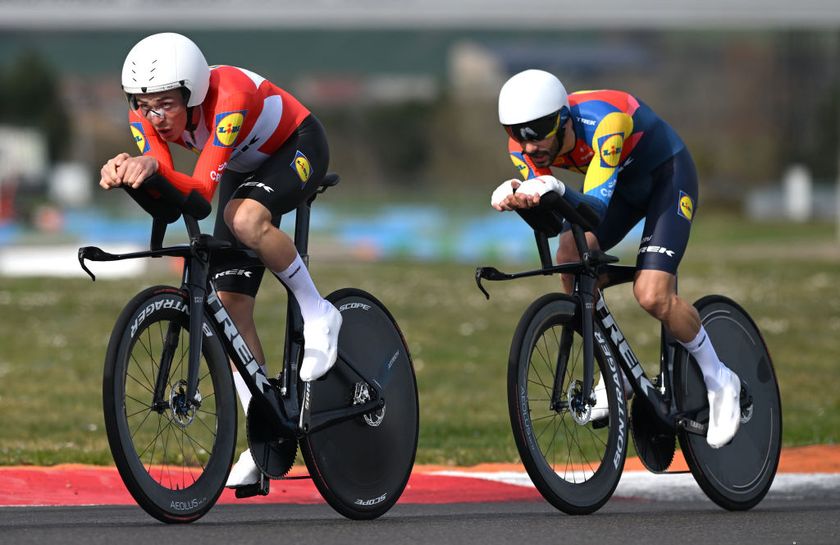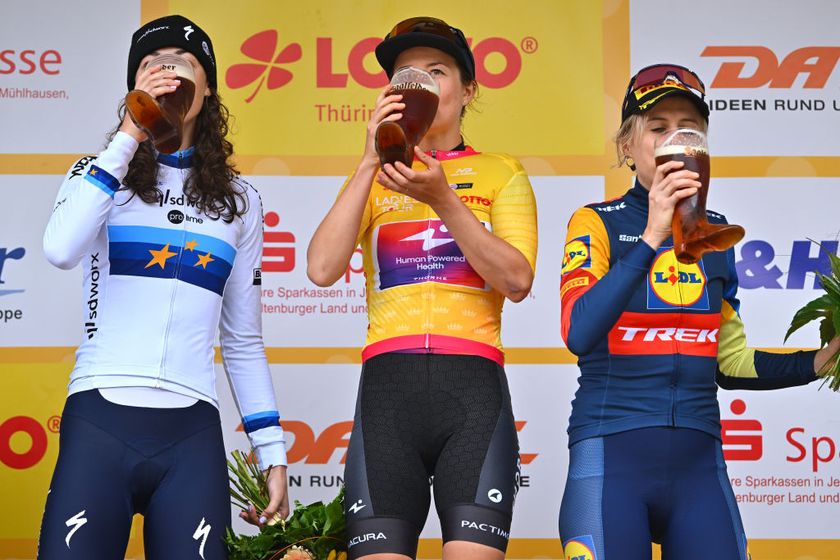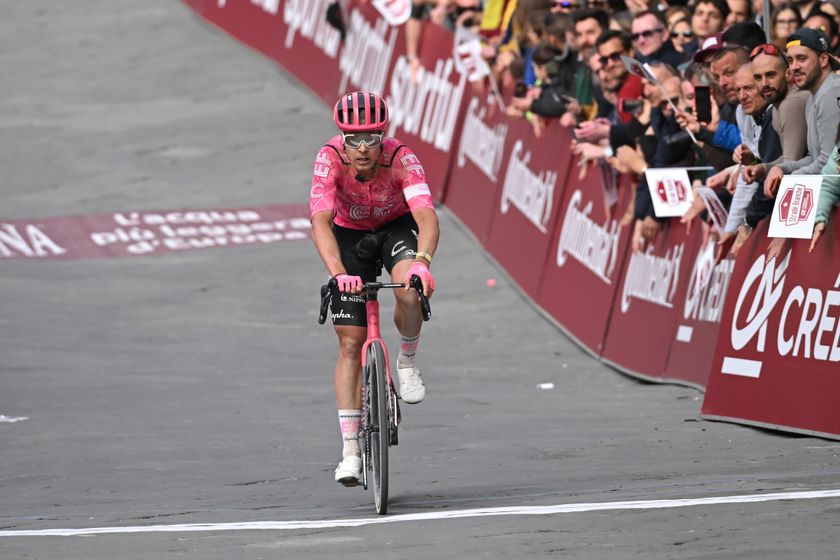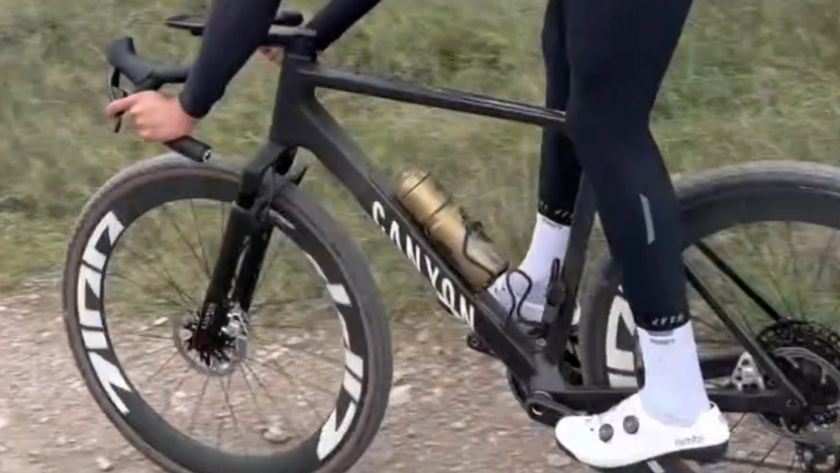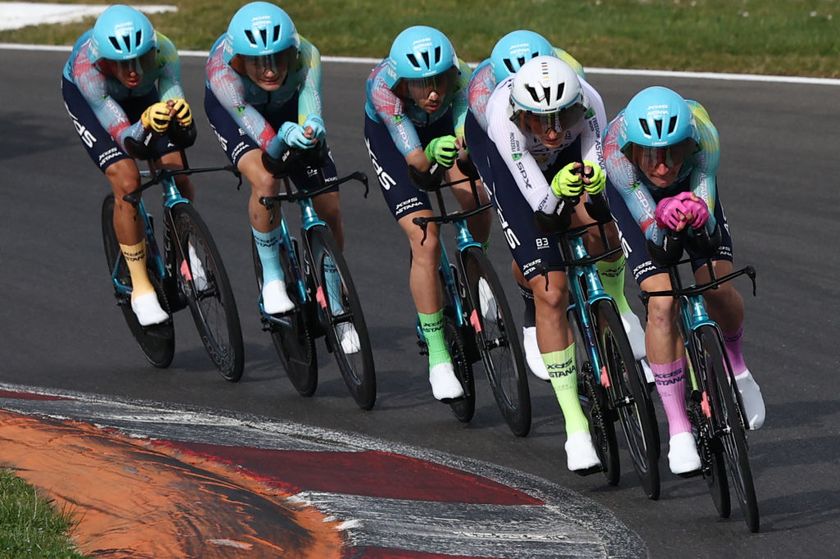Tour de France: Roche engages Tinkoff-Saxo’s Plan B on the road to Oyonnax
Irishman goes on the offensive on stage 11




Nicolas Roche began Tinkoff-Saxo’s first day on this Tour de France without Alberto Contador by vowing to go on the offensive and the Irishman was as good as his word in a breathless finale on the road to Oyonnax.
"We’re not going to sit at the back of the bunch and cry, that’s not our attitude," Roche said outside the team bus shortly before the start in Besançon. "The race is not over – there are eleven days left. We lost goal number one and now the goal is winning stages. I don’t have the pretension of beating Nibali on a mountain or Kittel in a sprint, but I’ll try."
Wednesday’s stage – a flat amble out of the Doubs before a sinuous, hilly end in the Jura – was neither fish nor fowl, and the ideal terrain for the versatile Roche. When no large early break materialised, Roche’s thoughts turned to eking out an opportunity in the finale.
On the Côte de Rogna, with 47 kilometres remaining, the opportunity presented itself and he jumped away in the company of Jan Bakelants (Omega Pharma-QuickStep) and they bridged up to earlier escapee Martin Elmiger (IAM Cycling).
Their advantage never climbed above a minute as Cannondale looked to control affairs behind for Peter Sagan, but Roche put up fierce resistance nonetheless. He stayed clear on the four climbs in the finale and jumped away alone on the final one, the Côte d’Échallon, with 20 kilometres remaining.
"I would have been happy to go with a group of fifteen early on or attack in the finale. In the end it was a bit of both. The stage was a lot harder than I thought it would be and although Cannondale were controlling it, I saw the opportunity in the climb," Roche said. "I saw that a lot of the sprinters were missing their teammates and I said to myself ‘why not?’ but it wasn’t enough."
Roche was eventually caught with 15 kilometres remaining on the twisting drop into Oyonnax after Tony Martin powered to the head of the bunch, and while stage honours fell to Tony Gallopin (Lotto-Belisol), he at least had the consolation of a trip to the podium for the day’s Prix de la Combativité.
Get The Leadout Newsletter
The latest race content, interviews, features, reviews and expert buying guides, direct to your inbox!
"This is the only time I've been on the podium at the Tour other than for the team prize," said Roche, who explained that manager Bjarne Riis had given the team the order to be an aggressive presence in the race in the wake of Contador’s abandon.
"He said the race wasn’t over, that we weren’t going to give up, we were going to make the team proud," Roche said. "It’s been a lot of work from the team, the mechanics, the staff over the last month. We all make these sacrifices. Plan A went out the window so we focus on Plan B. We want to want to win stages."
Contador’s bike
Before the stage began, Roche took care of some shop-keeping related to the Contador’s crash on stage 10 and the unfounded rumour that his fall had been caused by a broken frame. A loose remark in television commentary was fanned by social media to become a story, and while the conspiracy theories had largely been doused over the previous 24 hours, Roche was happy to quench the final flickers.
"There was a lot of crap on the internet," Roche said, clarifying that Contador’s bike was no longer functional after the crash, which is something rather different to a frame splitting on – or especially before – impact.
"His front lever was bent and the derailleur was also a little bit bent and the chain was off, but that doesn’t mean that the frame is snapped," Roche said. "There’s a big difference saying he cannot use his bike and saying the bike was split in five."
The confusion was caused by the fact that the frame of Contador’s spare bike had been broken by a collision with the Belkin team car earlier in the stage. Ever the company man, Roche went on to point out that it would hardly have been surprising if Contador’s frame had broken in the fall – though he again stressed that it had not.
"If you throw anything against the wall at 70kph, even if it had broken – is there really a problem? I mean, cars are meant to break at 70kph," Roche said. "When I said the bike was broken, I meant that it was non-usable and that’s why he used mine."
Roche gave short shrift, too, to the notion that Contador had taken undue risks on the descent of the Platzerwasel, a theory posited by of a number of riders immediately after the stage. "There were a lot of things on the internet saying that he was nervous, fighting for position, but that’s everyone, everyday," he said.
"We’re going down at over 70kph, it’s pouring rain, we’re on these small, narrow mountain roads. I don’t think anyone that’s riding in the front of the bunch is riding in a comfortable or easy or non-stressful situation. It’s part of our job to take that risk and to be nervous in the front of the bunch. He wasn’t more nervous than any other day."

Barry Ryan was Head of Features at Cyclingnews. He has covered professional cycling since 2010, reporting from the Tour de France, Giro d’Italia and events from Argentina to Japan. His writing has appeared in The Independent, Procycling and Cycling Plus. He is the author of The Ascent: Sean Kelly, Stephen Roche and the Rise of Irish Cycling’s Golden Generation, published by Gill Books.
